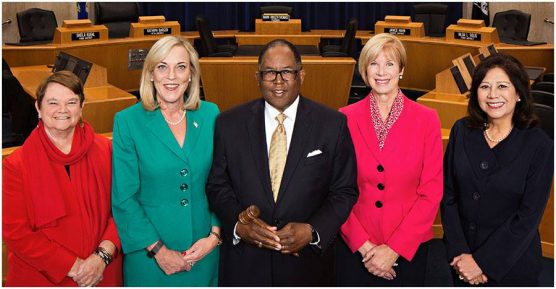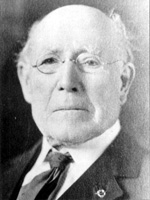The Board of Supervisors unanimously approved a motion aimed at preventing foster youth from becoming entangled in the juvenile justice system, and ensuring supportive care for those do.
Such “dual status” or “crossover” youth, who fall under the jurisdiction of both the dependency and delinquency systems, are a particularly vulnerable population: a 2016 report by Cal State Los Angeles showed that three-quarters of dual status youth had a mental health diagnosis, and one-tenth had attempted suicide.
“The issue of dual status youth is fundamental to the very question of how the County can improve its social safety net,” said the motion’s principal author, Supervisor Mark Ridley-Thomas. “The foster care to juvenile justice pipeline is real, and all too common. Once foster youth cross over to the delinquency system, the outcomes are grim – one-third of dual status youth are not even enrolled in school. Now is the time to reverse these trends.”
His coauthor, Supervisor Hilda L. Solis, added, “We are seeing the same kids who have lived in foster homes end up in juvenile halls and probation camps. We are losing a generation of youth to the system, but these youth are in our care and we have a responsibility to do better. They need informed supportive services so they can break free from the cycle of neglect, trauma, and delinquency and forge their own path to a better life. I hope this report will help us find ways to address this issue and provide our youth with the tools they need to succeed.”
Taylor Lytle entered the foster care system at age 11, only to become a victim of abuse in her foster placement and placed on unnecessary psychotropic medication that, as she described, “robbed me of my voice and ability to advocate for myself.” She was first arrested and sent to juvenile hall at age 13 for an incident at her group home, and cycled in and out of juvenile hall and probation camps for probation violations over the next four years. “I feel like the system failed me,” she said. “I spent most of my teenage years incarcerated for violations like school suspensions, drug use and running away from placements – clear signs of the trauma and anger I was experiencing. I wish somebody would have just helped me reconnect with my siblings and offered me guidance. Once you enter the justice system, it is so hard to get out of it. I am hopeful that this motion can change that, and I look forward to participating in finding the solutions.”
Liliana Flores was referred to the foster care system after experiencing physical and emotional abuse at the hands of her parents. “I was put in a group home where there was gang activity and drugs on a daily basis. I was hurting and got caught up in it. I was arrested twice and put in juvenile hall by the age of 16,” she said. “I continued to bounce around from juvenile halls to group homes without any guidance or help in regards to my education, social skills, or citizenship. During my teenage years, I felt like the system completely forgot about me. It is important that, with this motion, we change this dynamic. I don’t want any youth to have to experience what I did.”
“I’m excited about this motion because it calls for a collaborative approach,” said Children’s Data Network co-director Jacquelyn McCroskey. “One of our organization’s recent studies found way too many of our youth have been moving back and forth across the child welfare and delinquency systems. They and their families are too important not to bring all resources to bear in support of creating better futures.”
The newly approved motion charges the Office of Child Protection (OCP) with creating a countywide plan for dual status youth – and those at risk of becoming such youth – that is informed by an understanding of their particular needs and the policy changes underway. The motion passed unanimously, with minor amendments and suggestions to ensure disparities among LGBTQ youth are addressed as well as legal relief and record clearing offered to dual status youth.
The OCP is uniquely poised to lead this work. It will liaise with the Juvenile Court; convene affected youth and the County departments and community stakeholders serving them; identify funds to enhance services; and build on improvements already underway.
Like this:
Like Loading...
Related





 Tweet This
Tweet This Facebook
Facebook Digg This
Digg This Bookmark
Bookmark Stumble
Stumble RSS
RSS




























REAL NAMES ONLY: All posters must use their real individual or business name. This applies equally to Twitter account holders who use a nickname.
0 Comments
You can be the first one to leave a comment.